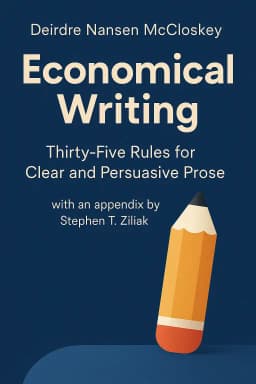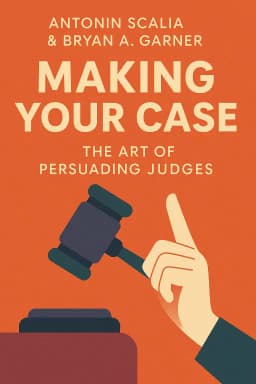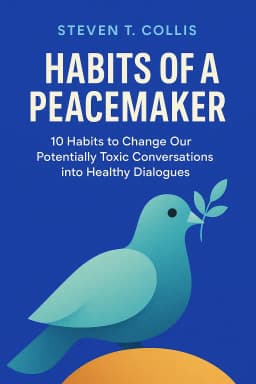
The Likability Lie
Golden Hook & Introduction
SECTION
Michelle: Most networking advice is a lie. The idea that you need a slick elevator pitch and a strategy to 'work the room' is not only exhausting, it’s actively sabotaging your success. Mark: Whoa, coming in hot today. But I get it. It feels like a performance. You put on your 'networking costume,' plaster on a smile, and try to collect as many business cards as possible, only to have them gather dust on your desk. Michelle: Exactly. And today, we’re talking about why being less strategic might be the most strategic move you can make. That's the core argument in Michelle Tillis Lederman's book, The 11 Laws of Likability: Relationship Networking . . . Because People Do Business with People They Like. Mark: Right. And what's fascinating about Lederman is her background. She's not some lifelong soft-skills guru. She has an MBA from Columbia and spent a decade in the cut-and-thrust world of finance—mergers, acquisitions, venture capital. For her to pivot and write a book about likability feels significant. Michelle: It absolutely is. It suggests she saw a huge gap between what traditional business culture values and what actually drives results: genuine human connection. And her entire philosophy shift can be traced back to a single, jarring comment in her NYU classroom. Mark: Oh, I'm intrigued. You can't just leave it there. What happened?
The 'Get Real' Mandate: Authenticity as the Bedrock of Likability
SECTION
Michelle: Well, picture this. Lederman is at the front of her organizational communication class at NYU, teaching these bright-eyed business students. Her mantra, which she’s drilling into them, is that every single communication must have a purpose, a strategic intent. Otherwise, you're just wasting everyone's time. Mark: That sounds exactly like what a finance-exec-turned-professor would say. All about efficiency and objectives. Michelle: Precisely. So, to make her point, she asks the class, "What do you think my objective is for this semester?" She's expecting an answer like, "To teach us effective communication strategies," or "To prepare us for the corporate world." Mark: And what did she get instead? Michelle: A student in the back raises his hand and says, with total confidence, "You want us to like you!" Mark: Wow. That's a bold student! But honestly, who doesn't want to be liked? Why was that such a bombshell for her? It seems kind of obvious. Michelle: That's the crux of it. Her initial reaction was pure defense. She brushed it off, saying something like, "Well, that's a nice byproduct, but my real objective is your learning." But the comment stuck with her. It gnawed at her. Later, she realized the student was 100% right. And her defensiveness was a smokescreen. Mark: A smokescreen for what? The fact that she's a human being with normal human desires? Michelle: A smokescreen for a belief she held that wanting to be liked was a weakness. That it was unprofessional, maybe even needy. The student’s comment forced her to confront this, and it led to an epiphany: acknowledging the desire to be liked isn't a weakness. It's the starting point for authentic connection. This is the foundation of her first and most important law: The Law of Authenticity. Mark: Okay, but 'be authentic' sounds great on a coffee mug. How does that actually work when you're nervous, you're in a high-stakes job interview, and you're trying to impress a potential boss? The temptation is to be the person you think they want you to be. Michelle: And that's the trap. The book argues that inauthenticity is incredibly draining. You're constantly running a script in your head, monitoring your every word, trying to maintain a persona. People can sense that. They might not know exactly what's off, but they feel a disconnect. Authenticity, on the other hand, is about uncovering what is already likable about you. Mark: I've seen some reviews of the book that are a bit critical on this point. They say a lot of this is just common sense, or that it's written for people who are, let's say, socially inept. Is there something deeper here, or is it really just 'be yourself'? Michelle: I think that criticism misses the point. It’s like saying 'eat healthy and exercise' is common sense. We all know it, but how many of us actually do it consistently? Lederman's work isn't just saying 'be yourself.' It's providing a framework for how. It starts with what she calls 'The Mirror Lesson' from her father. Mark: The Mirror Lesson? Okay, lay it on me. Michelle: When she was a child, her father would say, "The world is a mirror." She didn't get it. So one day, he stood her in front of a mirror and said, "Smile." She smiled, and the reflection smiled back. Then he said, "Now look angry." She scowled, and the reflection scowled back. He told her, "See? What you show the world is what the world will show you." Mark: Huh. That's actually a pretty powerful way to explain it. So the energy you project is what you get in return. If you walk into a room feeling insecure and defensive, you're basically inviting people to be wary of you. Michelle: Exactly. The work of being likable starts before you even open your mouth. It's about your self-image. The Law of Self-Image is a huge part of this. You have to like yourself before you can genuinely project something for others to like. It's about identifying your strengths, reframing your negative self-talk, and getting comfortable in your own skin. Mark: So it’s an inside-out job. The authenticity you project is a direct result of the self-acceptance you've cultivated internally. Michelle: That's the whole game. It’s not about faking it. It’s about revealing it. When you're comfortable with who you are, you don't need a script. You can be present, you can be curious, and you can actually connect with the person in front of you. Mark: Okay, so you've sold me on the internal part—be authentic, know yourself. But what happens when you actually have to, you know, talk to people and build something from it? That's where it gets tricky for a lot of us.
From Conversation to Connection: The Active Laws of Building Relationships
SECTION
Michelle: That's the perfect pivot, because it takes us from the internal mindset to the external actions. This is where the other laws come into play, like the Law of Curiosity, the Law of Giving, and the Law of Patience. These are the tools that transform a simple chat into a real relationship. Mark: Let's start with curiosity. It sounds simple, but I feel like most people's 'curiosity' in a networking setting is just waiting for their turn to talk. Michelle: That’s what Lederman calls fake curiosity. Real curiosity is about genuinely wanting to learn about the other person, with no immediate agenda. She tells a great story about this. A few years ago, she was at an industry roundtable and noticed a woman named Alana, who was a bit older and had just moved to the area. Mark: So, not an obvious strategic target for a business owner. Michelle: Not at all. On the surface, they seemed very different. But Alana said a few things that piqued Lederman's interest. So after the session, instead of hunting down the keynote speaker or a big-shot CEO, she sought out Alana. She was just... curious. Mark: And what happened? Michelle: They started chatting. That chat turned into a glass of wine, which turned into a two-hour conversation. They discovered they had a ton in common and, more importantly, that they could help each other. Alana was an experienced coach, and Lederman's training business had a growing need for coaching services for her clients. Mark: Wow. So a relationship that has probably generated significant business for both of them started with zero strategic intent. It just started with "I wonder what her story is." Michelle: Precisely. And that flows directly into the Law of Giving. During that conversation, they were both looking for ways to help the other. It wasn't transactional. It was, "Oh, you do that? I know someone you should talk to," or "You're struggling with this? Here's an idea." Mark: This 'Law of Giving' sounds nice, but in a competitive world, isn't there a risk of being taken advantage of? How do you give without becoming a doormat? I think that's a real fear for people. Michelle: It's a valid fear, and the book addresses it by tying it to the Law of Patience. The idea isn't to give with the expectation of an immediate return. That's just another form of transaction. It's about adding value to your network because you genuinely want to help. The universe, or the network, has a way of paying you back, but it's often not in a direct, one-to-one way. Mark: It's more like karma for your career. You put good out, and good things tend to find their way back to you, eventually. Michelle: A great way to put it. And it builds on the Law of Familiarity. When you consistently show up as someone who is curious, helpful, and generous, people become familiar with you as a positive force. They feel comfortable with you. They trust you. This is where the book's advice on social media, though some of it is a bit dated now with its specific tool recommendations, is still conceptually sound. Mark: How so? Because a lot of LinkedIn feels like the opposite of this. It's just a barrage of people asking for things. Michelle: Right, but you can use it differently. Instead of a cold connection request with a sales pitch, you can use it to practice the Law of Giving. Share an article you think someone would find interesting, with a note saying, "Saw this and thought of your work in X field." Congratulate someone on a new role. Make an introduction between two people in your network who could benefit from knowing each other. You're building familiarity and positive association without asking for anything. Mark: It's a long game. You're not closing a deal tomorrow. You're building a foundation of trust that might pay off in two years, or it might just lead to a great friendship. And you have to be okay with either outcome. Michelle: That's the Law of Patience in a nutshell. Relationships, real ones, take time to grow. You can't rush them. You plant the seeds by being authentic, you water them with curiosity and generosity, and then you have to be patient and let them grow.
Synthesis & Takeaways
SECTION
Michelle: So when you put it all together, the real framework here is an inside-out job. The authenticity and self-worth you cultivate internally—that's the 'Get Real' mandate—gives you the confidence and the foundation to be genuinely curious and generous externally. One can't really exist without the other. Mark: That makes so much sense. If you're insecure or faking it, your 'curiosity' will feel like an interrogation, and your 'giving' will feel like a transaction. It all has to come from a genuine place. Michelle: And that’s the core insight. Likability isn't a checklist of tactics. It's an approach to life. It's about seeing every interaction not as a means to an end, but as an opportunity for connection. The business, the job offer, the promotion—those are the byproducts of strong relationships, not the goal of them. Mark: So the challenge for our listeners isn't to go out and collect more business cards or perfect their elevator pitch. It's to pick one person they're genuinely curious about this week—a coworker, someone they met at a conference, a neighbor—and just... have the conversation. No agenda. Michelle: Exactly. And while you're at it, ask yourself this question: what's the one thing you can give to someone in your network this week with zero expectation of return? It could be an article, an introduction, a piece of advice, or just a word of encouragement. That's the starting point. Mark: I love that. It feels so much more manageable and, frankly, more human. We'd love to hear how that goes. Drop us a line on our socials and tell us about the one conversation you decided to have this week. Michelle: It’s a powerful shift. And it all comes back to that simple, profound idea: people do business with people they like. Mark: And they like people who are real. Michelle: This is Aibrary, signing off.









